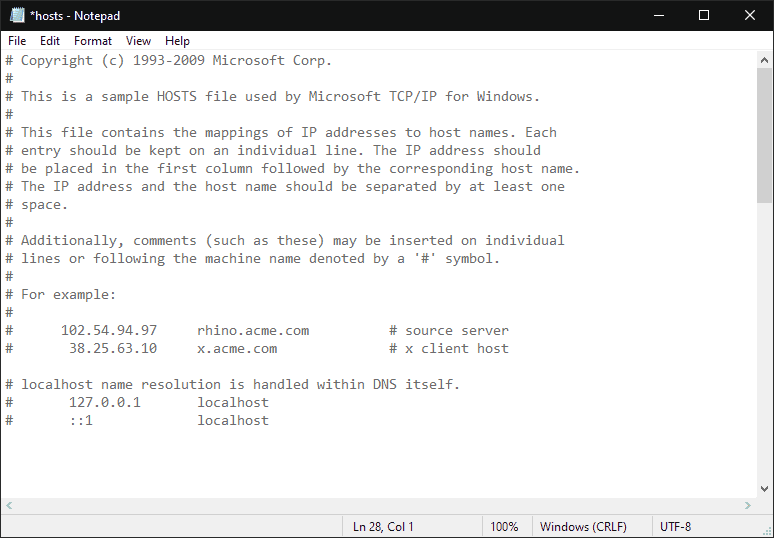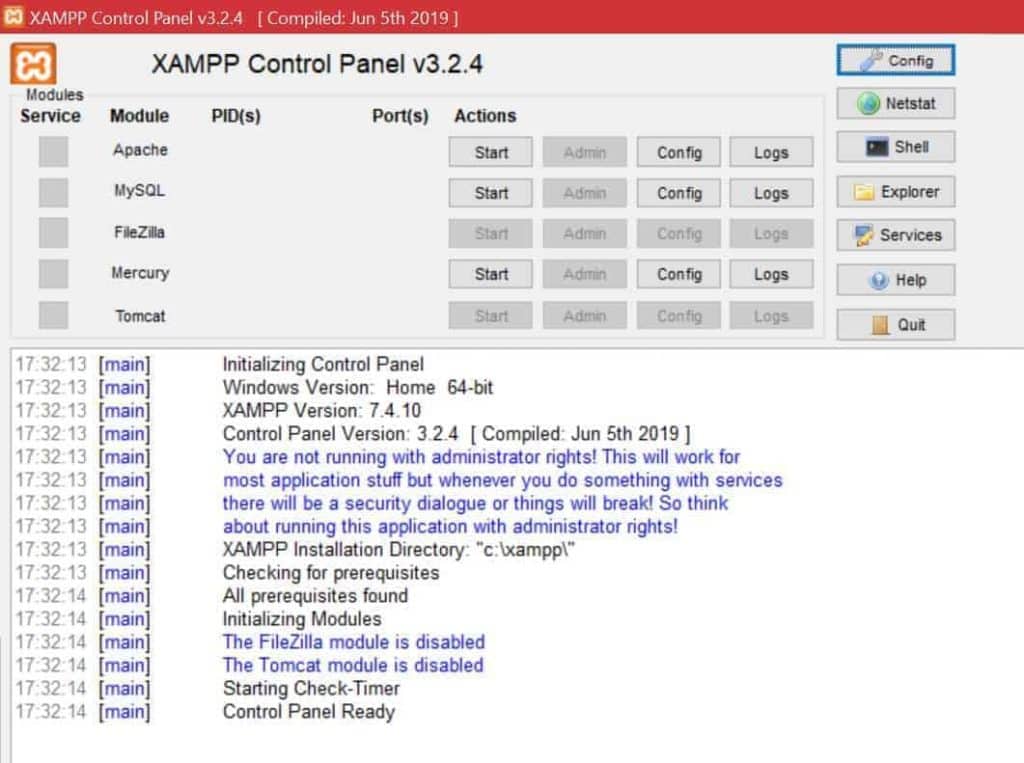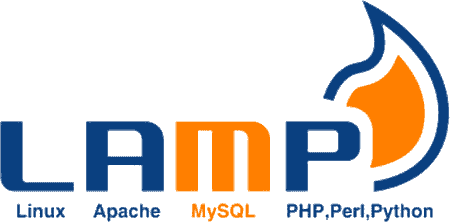Talking about networks and connections between computers we often hear about localhost or local host, but what is it exactly? Let’s try to shed some light on the topic and better understand localhost, from its meaning to its importance while working on WordPress.
So, in this article I will explain what localhost is and how you can use it to easily develop your web projects. In addition, I will also show you an overview of the main development platforms available for different operating systems.
Table of Contents
Localhost: what it is
The first thing that comes to mind when talking about localhost is to associate the term with the computer on which you are running a certain program.
Actually, the concept of localhost should be extended, because if we are talking about a web environment, in turn hosted on a server, the localhost is no longer the computer, but the server itself.
By convention the IP address of the localhost is associated with the value 127.0.0.1. However this is valid for networks that use the IPv4 protocol, for the IPv6 protocol, instead the address associated to the localhost will be ::1 .
In the case of your personal computer, in fact, you can find these two addresses in the hosts file, which normally (if not modified) will have these very entries associated with the localhost domain.

Usually this file remains unchanged, unless you find yourself in a situation where you need to edit the local hosts file, for example to access your site before the IP address change has been made effective.
Checking your local hosts file is also one of the methods that can help you solve dns_probe_finished_nxdomain error.
If you try to contact the localhost page through your browser, what you will get is an error message. Why?
For convenience, in order not to have to remember the IP address, localhost is used as the domain associated with the address 127.0.0.1.
The DNS therefore directly associates the “name” localhost exclusively to the corresponding address, for this reason the domain itself is reserved. This means that, to avoid confusion and problems, no one can buy a top-level domain that corresponds to localhost.
Now, let’s proceed step by step and to better understand what exactly the localhost consists of, let’s start by explaining what it is used for.
Localhost: what’s the point of having a server locally?
If you are involved in developing sites, for example in WordPress, you will certainly understand the usefulness of being able to simulate the operation of your site without having to put it online every time.

The main reason for using the localhost, in fact, is to create a local environment in which to develop and gradually verify the operation of a site or any web application.
You can also use a local server to transfer a WordPress site, for example if you’re waiting to switch hosting or want to make some quiet changes to your site before moving the files manually or make use of a plugin like Duplicator to transfer.
However, these are just some of the reasons why you may want to use localhost, and as you proceed reading, I will help you discover the features of local web development tools.
The advantage of developing the website locally before making it final for all intents and purposes is to be able to verify everything before making the portal accessible to users.
Creating an environment in which you can develop directly locally and without needing to use a remote server allows you to work more quickly. There are several tools that allow you to develop locally, let’s see what the main ones are.
Web development platforms
There are several platforms that offer you everything you need to develop your websites locally, as we’ll see some of them are designed (or at least born) to work only on certain operating systems.

In addition, there are also tools created specifically for development with WordPress, which can be useful in case you focus mainly on development through this CMS.
In general, these platforms always include a web server like Apache or nginx, a database like MySQL or MariaDB and an interpreter like Python, Perl or PHP.
MAMP

MAMP is an acronym for:
- Mac OS X (since it was initially developed for Mac only)
- Apache (i.e. the web server, although you can use nginx as an alternative)
- MySQL (one of the most used databases)
- PHP (actually, however, you can also use Python and Perl as languages).
MAMP was initially developed for Mac users and, therefore, has been a reference point for them for years. The development platform was then made available also on Windows operating system.
To learn more about all aspects of this software from its installation, configuration and use, to the uninstallation itself, I suggest you read my in-depth guide on MAMP.
XAMPP

XAMPP stands for Cross Apache MySQL PHP and Perl, so it is a cross-platform system that, like MAMP, combines multiple tools to allow you to develop web applications.
One of its advantages when compared to MAMP is the possibility to be installed directly on a USB stick and work, therefore, as a portable web server.

XAMPP is a totally free platform released under a free license for all Unix-like operating systems, so it works on Windows, Linux and MacOS. In the image above you can see what a control panel of the platform looks like on Windows. From this panel you can easily start the modules that interest you, after configuring them.
WAMP

It is essentially the version of AMP (set of applications formed by Apache, MySQL and the PHP, Perl and Python languages) designed to adapt to Windows.
LAMP

Same as AMP, but in the version designed for Linux. We can understand them as restricted versions of the crossplatform one, that is XAMPP.
Local by Flywheel

Compared to the other platforms mentioned so far, Flywheel’s Local is designed to work with WordPress. This means that unlike the others that can be used generically online to also test PHP scripts, or other CMSs, Local will allow you to specifically create your WordPress sites locally, with greater ease.
Local also allows you to share your project externally, in this way, you can, for example, show the site to others (via a simple link) while it is hosted on your own computer.
To learn more about how to use Local, understand how to install it and delve into all of its features and convenience in developing web projects, you can read my guide on how to install WordPress locally.
Conclusions
In this article we have seen what is meant by localhost and understood what is the difference between localhost and 127.0.0.1.
So, I’ve also walked you through the reasons why you might need to use an on-premises server and shown you the main platforms to do so. If there’s anything you’d like me to elaborate on, let me know with a comment.





Leave a Reply